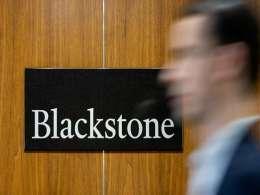Citigroup Inc said cost-cutting and improved results from investment banking and trading led to a substantially smaller first-quarter loss, despite a big increase in credit costs from consumer banking and credit cards.
The third-largest U.S. bank joined Goldman Sachs Group Inc, JPMorgan Chase & Co, Wells Fargo & Co and others in posting results that suggest massive government efforts to jump-start the ailing economy are helping boost bank profits, though the industry's problems are far from over.
"Perhaps the banking sector crisis is bottoming," said Richard Hunter, head of U.S. equities at Hargreaves Landsdown in London.
Citigroup also said on Friday it plans to delay a proposed exchange of billions of dollars of preferred shares into common stock until the U.S. government completes its "stress tests" of large banks to gauge which might need more aid. Citigroup has taken $45 billion of taxpayer money in a series of bailouts.
Citigroup's quarterly loss available to common shareholders narrowed to $966 million, or 18 cents per share, from $5.19 billion, or $1.03, a year earlier. Revenue roughly doubled to $24.79 billion.
Analysts on average had expected a loss of 30 cents per share on revenue of $21.73 billion, according to Reuters Estimates.
Citigroup shares rose 37 cents, or 9.2 percent, to $4.38 in premarket trading. They hit a record low of 97 cents on March 5.
Chief Executive Vikram Pandit has been slashing costs and trying to unload weak businesses and assets. The New York-based bank cut 13,000 jobs in the first quarter, ending with 309,000, and shed $116 billion of assets, ending with $1.82 trillion.
"It was slightly better than anticipated, but we probably underestimated how much government support would be a wind at their back," said Michael Holland, founder of Holland & Co in New York. "The challenges are still enormous. In the context of what we heard from JPMorgan yesterday with its continuing concerns about the consumer, Citi is going to suffer, too."
Excluding the impact of preferred stock, Citigroup said quarterly profit was $1.59 billion, compared with a loss of $5.11 billion a year earlier. Results for shareholders were reduced by $2.6 billion by preferred share dividends and the reset of a conversion price on preferred securities issued in 2008.
Citigroup had lost $37.5 billion in the prior five quarters, and Pandit said the latest results were the best in nearly two years. "We have lowered risk and dramatically reduced the problem legacy assets that have caused many of our losses," he said.
STRESS TEST
Citigroup has been propped up three times by the government since October, taking the $45 billion from the Troubled Asset Relief Program and getting a government agreement to share in losses on $300.8 billion of troubled assets.
First-quarter results included $10.3 billion of credit costs, up 76 percent, with a large portion of the increase stemming from credit cards. This included $7.3 billion of net credit losses, a $2.7 billion increase to loss reserves, and $332 million for other benefits and claims.
Citigroup's institutional clients group, which includes investment banking, swung to a $2.83 billion profit from a year-earlier loss, helped like some rivals by strong results from fixed-income trading.
Consumer banking lost $1.23 billion, reflecting increased credit losses, including in residential real estate. Credit card operations saw profit fall by two-thirds to $417 million, although North America posted a loss.
Pandit in January split Citigroup into Citicorp, which includes businesses the bank wants to keep, and Citi Holdings, which includes brokerage and insurance units, bad debt and other assets that it wants to shed.
Through Thursday, Citigroup shares had fallen 40 percent this year, compared with a 19 percent drop in the KBW Bank Index. Citigroup traded above $56 as recently as January 2007.





